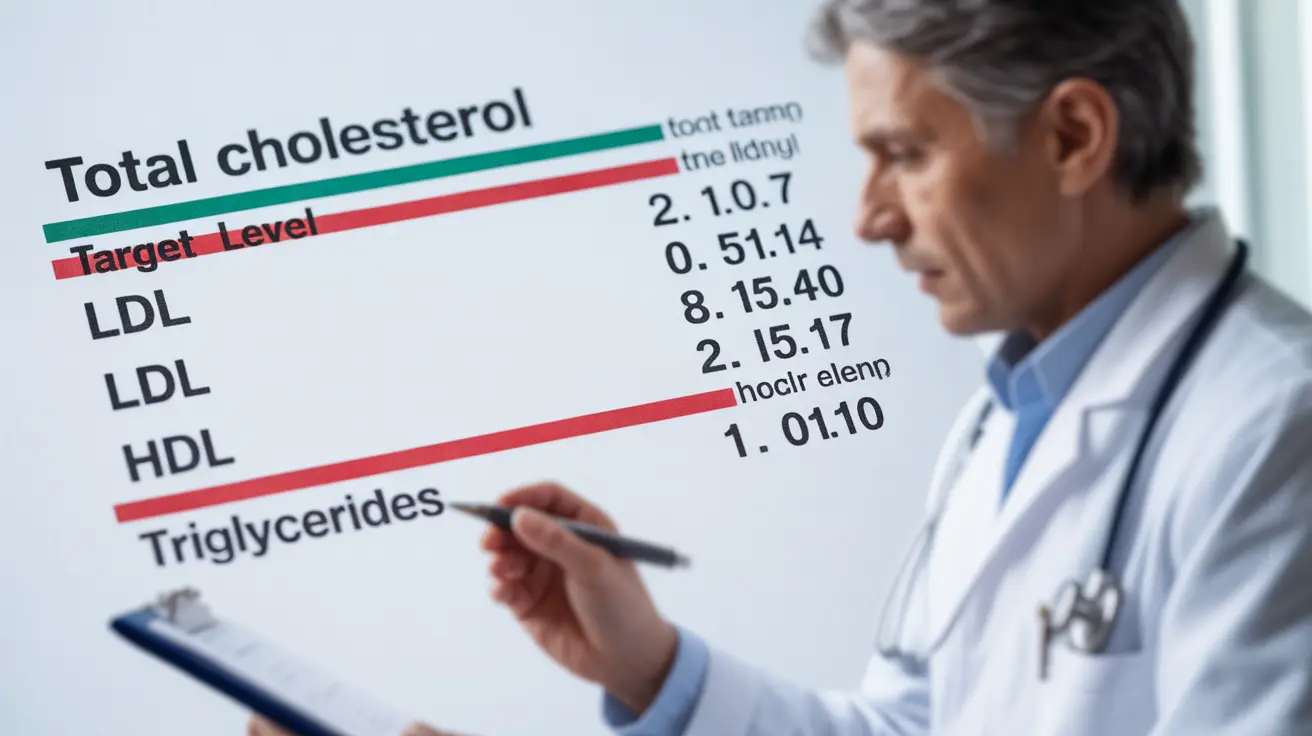A cholesterol blood test is a crucial medical screening that provides vital information about your cardiovascular health. This comprehensive test measures various types of lipids (fats) in your blood, helping healthcare providers assess your risk for heart disease and other cardiovascular conditions.
Whether you're preparing for your first cholesterol test or looking to better understand your results, this guide will walk you through everything you need to know about this essential health screening.
What a Cholesterol Blood Test Measures
A cholesterol blood test, also known as a lipid panel or lipid profile, measures several key components in your blood:
- Total cholesterol
- LDL (low-density lipoprotein) cholesterol
- HDL (high-density lipoprotein) cholesterol
- Triglycerides
Each of these components plays a different role in your cardiovascular health, and understanding their levels helps create a complete picture of your heart disease risk.
Preparing for Your Cholesterol Test
Proper preparation is essential for accurate cholesterol test results. Most healthcare providers recommend:
- Fasting for 9-12 hours before the test
- Maintaining your regular medication schedule (unless advised otherwise by your doctor)
- Avoiding strenuous exercise 24 hours before the test
- Staying hydrated with water
Always consult with your healthcare provider about specific preparation instructions, as requirements may vary based on individual circumstances.
Understanding Your Test Results
Target Cholesterol Levels
For most adults, healthy cholesterol levels are:
- Total Cholesterol: Less than 200 mg/dL
- LDL Cholesterol: Less than 100 mg/dL
- HDL Cholesterol: 60 mg/dL or higher
- Triglycerides: Less than 150 mg/dL
However, target levels may vary based on your age, gender, and overall health status. Your healthcare provider will interpret your results in the context of your complete health profile.
Recommended Testing Frequency
The frequency of cholesterol testing varies by age and risk factors:
- Adults 20+ with no risk factors: Every 4-6 years
- Men over 45 and women over 55: More frequent testing
- People with heart disease risk factors: Annual testing
- Children: First test between ages 9-11, repeat between ages 17-21
Managing Your Cholesterol Levels
If your cholesterol test results indicate high levels, several management strategies may be recommended:
- Dietary modifications
- Regular physical activity
- Weight management
- Smoking cessation
- Medication (if prescribed by your healthcare provider)
Frequently Asked Questions
What does a cholesterol blood test measure and why is it important for heart health?
A cholesterol blood test measures different types of lipids in your blood, including total cholesterol, LDL, HDL, and triglycerides. It's important because these measurements help predict your risk of developing heart disease and other cardiovascular conditions.
How should I prepare for a cholesterol blood test and do I need to fast before it?
Yes, fasting is typically required for 9-12 hours before the test. You should only drink water during this time. Continue taking prescribed medications unless directed otherwise by your healthcare provider.
What do my cholesterol blood test results mean and what are the healthy target levels?
Healthy levels generally include total cholesterol below 200 mg/dL, LDL below 100 mg/dL, HDL above 60 mg/dL, and triglycerides below 150 mg/dL. Your doctor will interpret these results based on your individual health factors.
How often should adults and children get a cholesterol blood test?
Healthy adults should get tested every 4-6 years, while those with risk factors may need annual testing. Children should be tested between ages 9-11 and again between 17-21.
What lifestyle changes or treatments can help manage high cholesterol after a blood test?
Management strategies include adopting a heart-healthy diet, regular exercise, maintaining a healthy weight, quitting smoking, and taking prescribed medications if necessary. Your healthcare provider will recommend specific changes based on your test results and overall health status.




